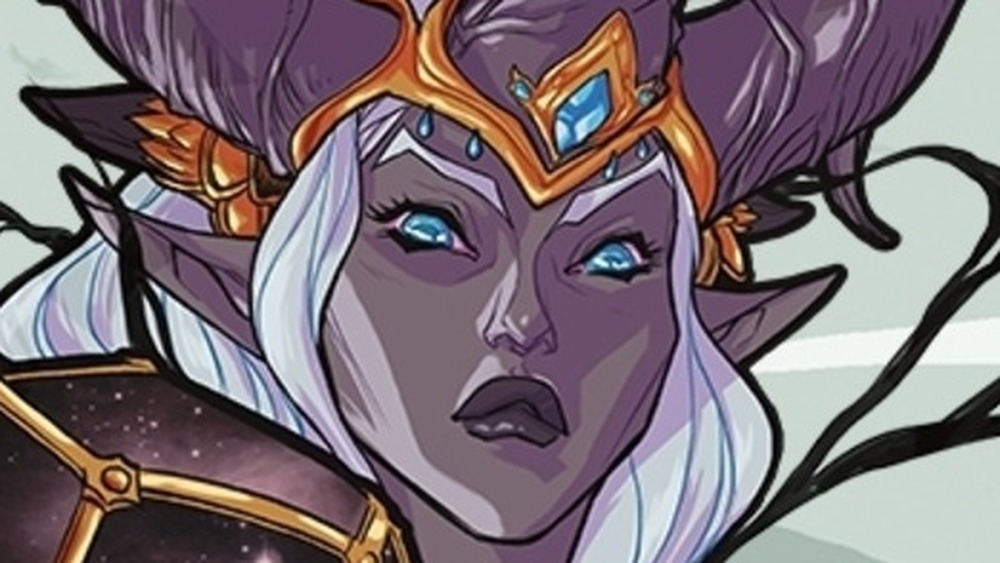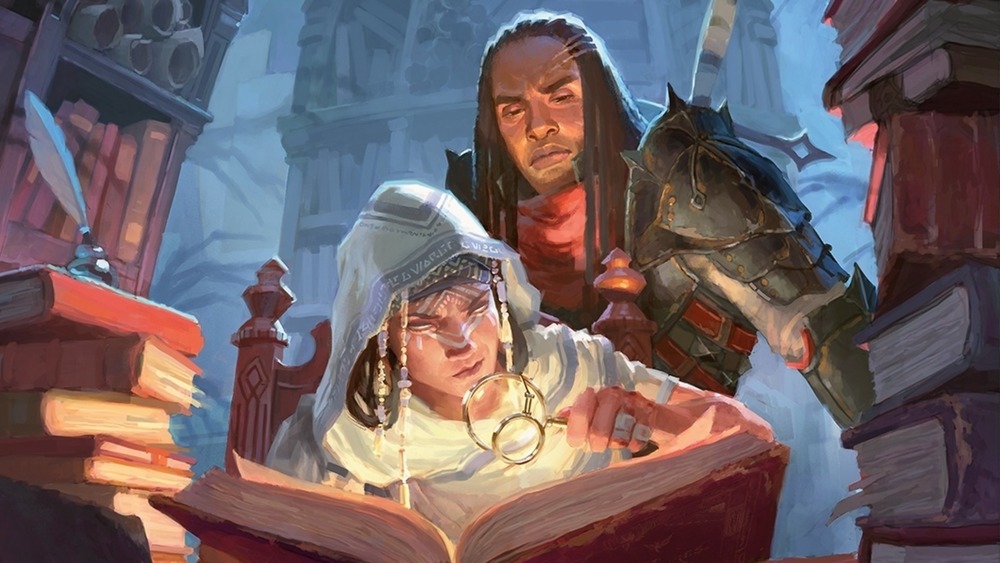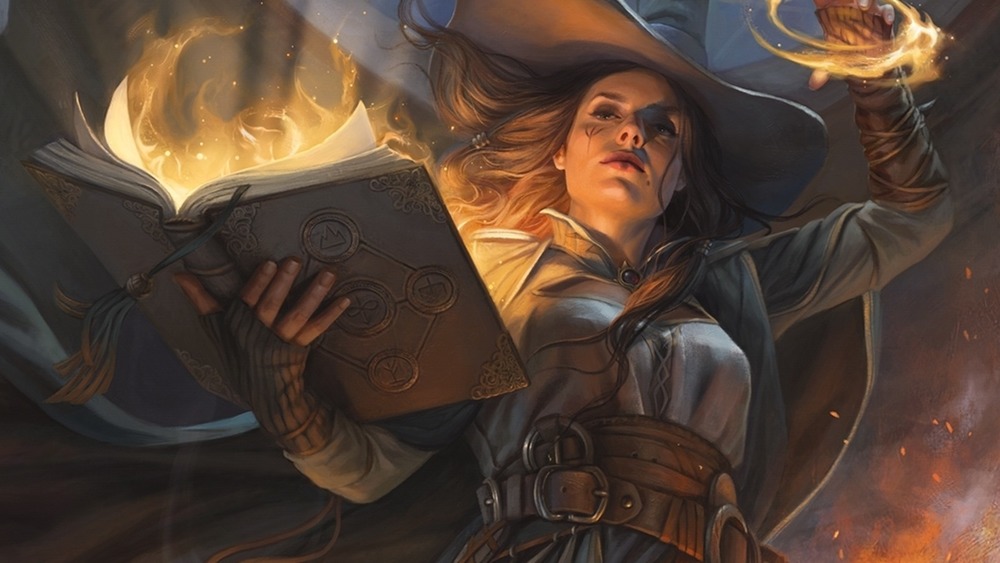The Big Mistake DMs Can Make When Starting A Dungeons & Dragons Campaign
Dungeons & Dragons may present itself as a fun game about slaying monsters and looting dungeons, but there's another important side to it — collaborative storytelling. It's what makes tabletop role playing games so unique. However, creatively collaborating isn't always easy. If everyone comes to the table with different ideas about how they want to play the game, disagreements are bound to happen. So there's one thing every Dungeon Master should do before embarking on an adventure with their party: Host a session zero.
Session zero happens before the actual campaign's gameplay begins. It's a chance for the DM and players to all get together for the first time and create their characters. However, it's also an important moment to discuss what the campaign will be like ahead of time.
These days, D&D is no longer relegated to just the basement — having moved past its controversial history — and there are public games live streamed on Twitch, broadcast on podcasts, or even played in front of crowds. All of this can build expectations about the game for new and old players on top of any existing gameplay preferences, so hosting a session zero is even more important now than ever, to figure out the game ahead.
What style of D&D does everyone want to play?
On the precipice of adventure, hashing out details at the beginning of a campaign might seem boring, but it's absolutely worth it. No one wants to get three sessions deep and find out a player is intent on killing the rest of the party with their evil character, while the others want to stick to saving people and living up to their good alignments.
So before playing, it's important to discuss the kind of play styles everyone is interested in. For example, should the game be combat-heavy or roleplay-heavy? Based on a mystery that needs unravelling, or set in a dungeon fit for plundering? Feature political intrigue, or be centered on good ol' fashion heroes? Some games are extremely character-driven, where backstory elements from the player characters are woven into the story. This style can be intimate and engaging, but requires players who are interested. Others might simply want a foe to defeat, and sweet loot for their efforts. Then there's the issue of character romance: Some D&D players will want it to blossom in their game (maybe they saw it on Critical Role), while others will feel uncomfortable. Here's a pro tip: Instead of springing even a fake kiss on someone, talk about it first outside of the game.
Different game styles can coexist in one campaign, but it's good to know what everyone prefers beforehand. According to the Dungeon Dudes, a good way to sort this out is have the DM ask everyone questions, like their favorite thing about D&D, or something they've wanted to do in the game but have never done. Then, the DM can use this information to ensure every player gets a fun experience out of the game — that's the goal, of course!
Decide on the tone of the game, as well as who's bringing snacks
Play style and character creation are still just the base level when it comes to a good session zero. It's also worth it to discuss the actual rules of the game, even if — and maybe particularly if — everyone's a veteran player: What set of rules will be used, and how strictly will they be adhered to? Does that include house rules? When is it okay to contest a rule with the DM? Plus, everyone should get on the same page as to the tone of the game. This can affect what kinds of characters are allowed — D&D has the range to go from an absurd joke to full on grimdark — but also make it clear what kind of role play is allowed, like whether or not relentlessly pursuing immortality is a socially acceptable goal. Few people are going to want to play with a murder hobo — someone whose first solution to any problem is to kill said problem — since indiscriminate murdering can make it difficult to keep the story and world feeling real.
However, session zero isn't just about in-game policies, but also real world concerns. The most important is deciding when everyone is going to meet up and play, as well as how long the campaign will last — it can be as short as a few sessions or as long as literal decades. Lastly, everyone had best decide on the snack policy — who's bringing food, and will there be alcohol?
Sure, a successful session zero sounds like a lot of work, but it could be a huge mistake to not discuss these things ahead of time. To build a party and campaign that is respectful and fun, communication is key.


